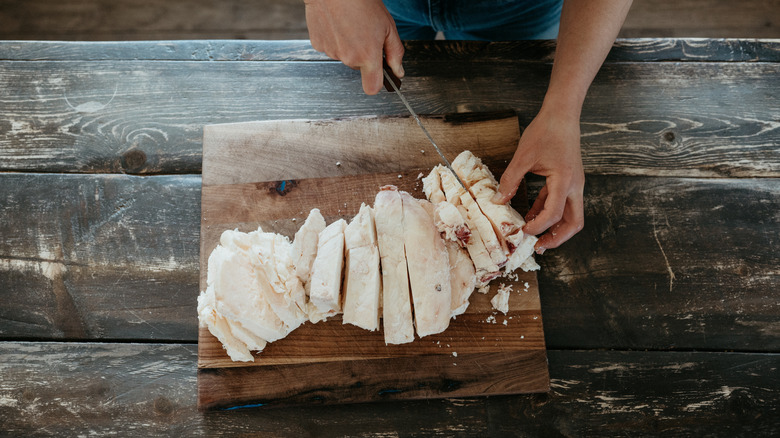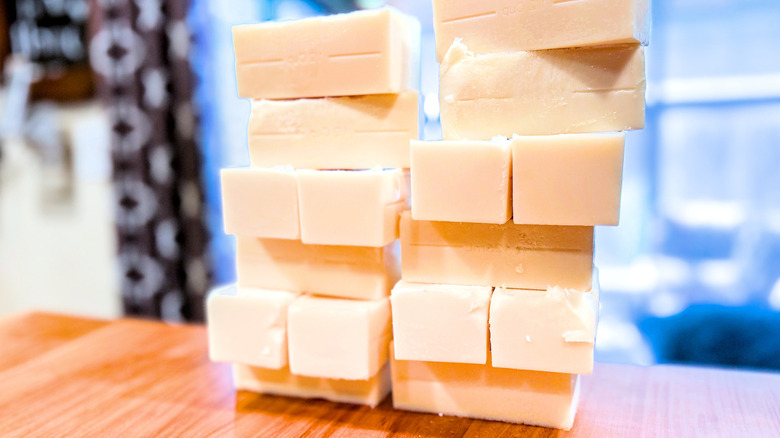Avoid This Critical Mistake When Cooking With Beef Tallow
Despite what you may be seeing on social media, making your own sunscreen is absolutely not the best use for beef tallow. Beef tallow is the fat of a cow that's been cooked over low heat for a long amount of time, which is known as rendering, and then strained and left to solidify naturally. It's been used for thousands of years to make candles, soaps, and even balms and lotions, and as a cooking fat, like suet for pastry dough, and as a delicious cooking oil. Out off all the mistakes you should avoid when cooking with beef tallow, heating it beyond its smoke point might be the worst.
There are many benefits to cooking with beef tallow, its high smoke point being one of them. Similar to most animal fats and oils, heating beef tallow higher than its smoke point will cause the fat to deteriorate, quickly leading to a foul, acrid smell and a bitter taste. You'll know if you've passed tallow's smoke point if the liquid fat begins to turn darker, or if it begins to visibly smoke, or gives off an acrid scent. At that point, you need to discard the fat and wipe out the pan, as the fat is no longer suitable for cooking. Additionally, don't let the beef tallow sit in a hot pan for too long, as the longer you heat it before using it to cook, the higher the chance it has of overheating and becoming unusable.
Beef tallow is great to a certain degree
Beef tallow has a smoke point of about 400 degrees Fahrenheit, which is fairly high in comparison to most cooking oils and on par with canola and vegetable oils. Extra virgin olive oil, for example, has a smoke point of only 325 degrees Fahrenheit, while peanut, soybean, and corn oil, as well as clarified butter, have a smoke point of 450 degrees Fahrenheit.
In addition to being suitable for higher heat applications, similar to cooking with other animal fats like duck fat, bacon fat, or butter, beef tallow imparts a delicious, deep flavor that is difficult to achieve with plant-based oils. High-quality beef tallow, especially grass-fed, contains beneficial nutrients like omega-6 and vitamins E, K, D, and A. Beef tallow is not a highly processed product like some refined plant-based oils are, making it a good option to have in rotation in your kitchen.
Beef tallow is an excellent choice to use when you want to cook with high heat and impart more flavor to your cooking, especially if you're avoiding using dairy products like butter or ghee. However, it's important to note that beef tallow is not a miracle ingredient, and like other animal fats, it should be consumed in moderation. Check out our pro tips for cooking with beef tallow before working with it in your kitchen.

